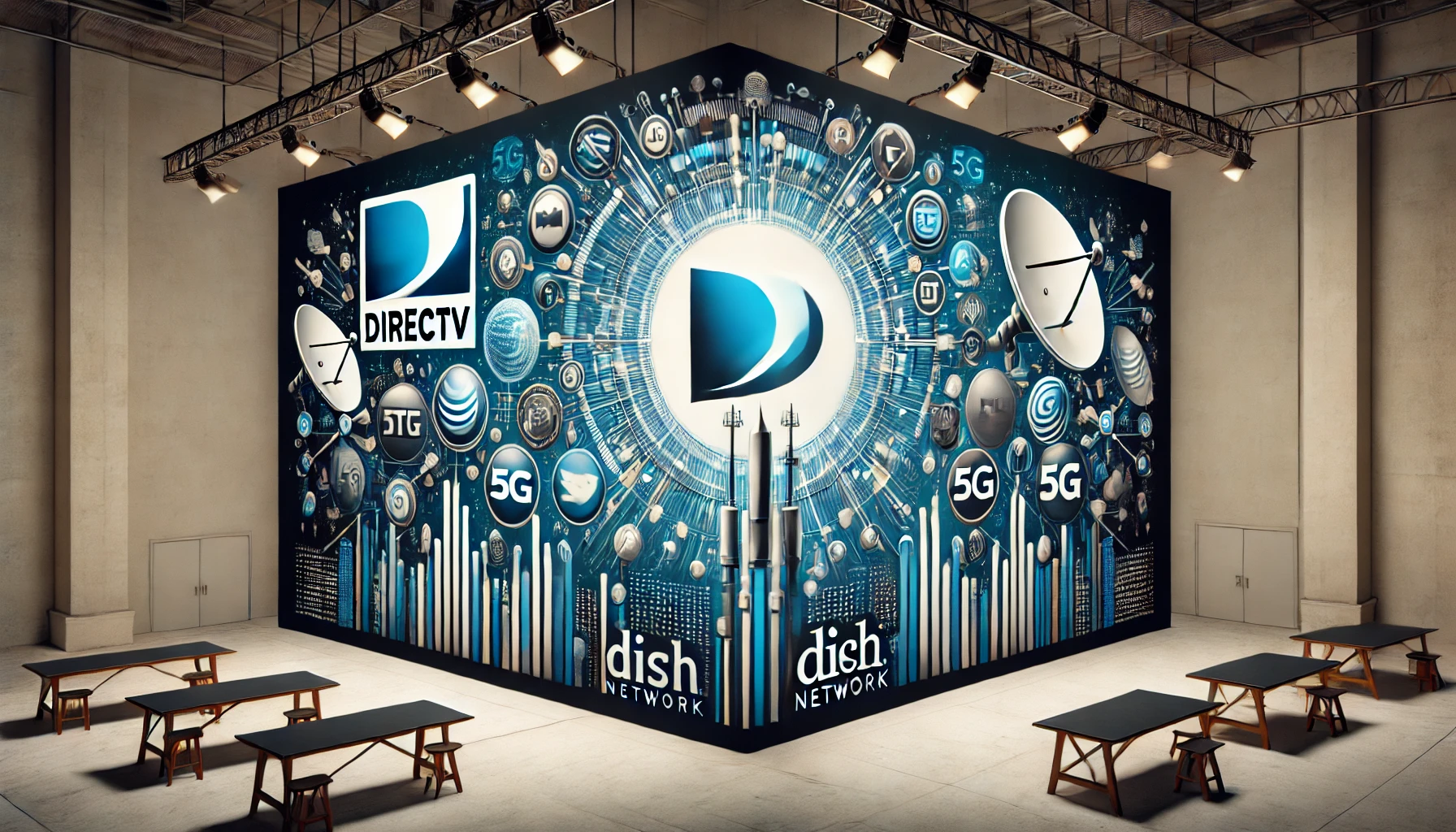Inside the DirecTV-Dish Merger: What the Satellite TV Giants’ Deal Means for the Future
The landscape of satellite television is set for a seismic shift with the announcement that Dish Network is being sold to DirecTV for a mere $1. This unprecedented deal between the two largest satellite TV providers in the U.S. could transform the industry, consolidate competition, and redefine the future of home entertainment. In this article, we will explore the key factors driving this DirecTV-Dish merger, its impacts on customers and the industry, and what the future holds for satellite TV services.
Why Did DirecTV Buy Dish Network?
The Dish Network sale to DirecTV isn’t the first time these two companies have attempted to join forces. Back in 2001, they proposed a merger, but regulatory concerns led to the deal’s rejection. Now, in 2024, things are different. Changing market dynamics, shrinking customer bases, and intense competition from streaming platforms have created a much stronger case for the DirecTV Dish merger.
1. Declining Satellite TV Market
The satellite TV market has been in decline for years, with cord-cutting becoming more prevalent as consumers shift towards streaming services like Netflix, Hulu, and Disney+. Both Dish Network and DirecTV have seen significant subscriber losses as streaming becomes the preferred method for consuming media. A Dish DirecTV acquisition allows the two companies to consolidate resources and customers, making it easier to weather the decline in satellite TV while potentially investing in other ventures, such as broadband internet services.
2. Financial Troubles at Dish Network
Dish Network has been in a financially precarious situation, with reports of decreasing revenue and mounting debt. The Dish Network $1 sale price tag may seem astonishingly low, but it reflects the company’s ongoing struggles. For DirecTV, this acquisition is a strategic opportunity to absorb a weakened competitor at a minimal cost, strengthening its own position in a shrinking market. The sale also helps Dish unload some of its financial burdens while allowing it to focus on other business opportunities, like Boost Mobile and its wireless ventures.
3. The Role of Port Automation and the Wireless Industry
Interestingly, Dish’s broader ambitions beyond satellite TV could also be driving this deal. In the last decade, Dish Network has been making moves to expand into the wireless sector, acquiring Boost Mobile and participating in spectrum auctions. By shedding its satellite TV business through this DirecTV Dish buyout, Dish can concentrate its efforts on building a wireless infrastructure that competes with established players in the 5G and telecommunications markets(
).
What Does the DirecTV-Dish Merger Mean for Customers?
As the Dish Network DirecTV deal unfolds, many customers are left wondering how this will impact their services and subscriptions. There are several key areas of concern:
1. Pricing and Packages
A major question for both Dish and DirecTV customers is whether the merger will lead to price hikes. Consolidation often results in reduced competition, which can cause prices to rise. However, in this case, the declining satellite TV market might actually force the newly merged entity to keep prices competitive to retain customers who are already tempted by cheaper streaming services.
2. Service Improvements
While pricing might be a concern, the DirecTV Dish merger 2024 could result in service improvements for subscribers. By combining their resources, DirecTV and Dish can streamline their operations, improve the quality of their satellite service, and potentially offer better content bundles. Additionally, the merger may result in fewer blackouts and disruptions caused by contract disputes with content providers.
3. Bundling with Broadband and Wireless Services
One area where the merger could offer significant benefits is in bundling satellite TV with broadband or wireless services. DirecTV is currently owned by AT&T, which means customers could see more attractive packages that combine TV with high-speed internet or mobile services. For Dish, this provides an opportunity to focus more on its wireless ambitions while allowing DirecTV to handle the satellite TV business.
How Will the Merger Affect the Satellite TV Industry?
The satellite TV merger between DirecTV and Dish is likely to have a profound impact on the broader industry. As streaming continues to dominate the entertainment sector, the merger might be a last-ditch effort to keep satellite TV relevant.
1. Consolidation of Competition
With DirecTV buying Dish, the satellite TV industry will see a significant reduction in competition. The combined company will dominate the remaining satellite TV market, which could lead to a monopoly-like situation. However, given that satellite TV is a shrinking segment, regulatory bodies may be more lenient this time around, unlike in 2001.
2. Shifts Toward Streaming
Both Dish and DirecTV have been attempting to pivot to streaming for some time. Dish offers Sling TV, while DirecTV has its own streaming options. The merger could allow the new company to invest more heavily in streaming technologies, offering more competitive services to battle giants like Netflix and Hulu. This shift is essential if the combined entity is to remain relevant in the evolving entertainment market.
3. Broadband and 5G Expansion
Another possible outcome of the Dish DirecTV acquisition is an increased focus on broadband and 5G services. As the satellite TV market continues to shrink, the newly merged company may invest in expanding broadband access to underserved areas, particularly in rural communities where satellite TV still holds sway. Dish’s interest in the wireless industry could also lead to partnerships or joint ventures with AT&T to offer comprehensive 5G packages.
Regulatory Challenges Ahead
While the Dish Network sale for $1 might seem like a straightforward deal, there are still regulatory hurdles to overcome. Mergers of this magnitude often come under scrutiny from the Federal Communications Commission (FCC) and the Department of Justice (DOJ). However, the current state of the satellite TV market might work in the companies’ favor. With streaming services dominating the media landscape, regulators may see this DirecTV Dish buyout as necessary to preserve competition in a dwindling market rather than as a monopolistic move.
1. Past Regulatory Issues
In 2001, the FCC and DOJ blocked the original merger attempt between Dish and DirecTV, citing anti-competitive concerns. However, the market has changed drastically in the past two decades. Satellite TV now faces fierce competition from streaming services, broadband providers, and cable companies. Regulators may view the Dish Network DirecTV deal differently this time, as the combined entity will still be fighting an uphill battle against more dominant streaming platforms.
2. Customer Protections
Even if regulators approve the merger, they are likely to impose conditions designed to protect consumers. These could include price controls, limitations on exclusive content deals, and requirements to invest in broadband infrastructure. The goal would be to ensure that customers continue to receive quality service without being subjected to monopolistic pricing practices.
What’s Next for DirecTV and Dish Network?
Looking ahead, the success of the DirecTV Dish merger will depend on how well the combined company can adapt to the evolving media landscape. As traditional TV continues to lose ground to streaming, DirecTV and Dish will need to invest heavily in new technologies, content, and services to stay competitive.
1. Embracing Streaming Services
To survive in a post-merger world, the combined company must offer compelling streaming options. Whether through Sling TV, DirecTV Stream, or a newly branded service, they will need to compete directly with major streaming platforms. A strong focus on user experience, content variety, and pricing will be essential for retaining customers.
2. Expanding Broadband Access
Another critical area for growth is broadband and 5G. With Dish already invested in wireless technologies, the merger could pave the way for expanded broadband services, particularly in rural areas where satellite TV has a stronghold. This would not only help the company diversify but also create new revenue streams outside of traditional satellite television.
The DirecTV-Dish merger marks a significant turning point in the satellite TV industry. With DirecTV buying Dish for just $1, the merger is a testament to the changing media landscape, where traditional TV services are losing ground to streaming platforms. While there are challenges ahead, including potential regulatory hurdles and the need for significant investment in new technologies, the deal could help the combined company stay relevant in a rapidly evolving market. For customers, this satellite TV merger may bring both benefits and challenges, depending on how pricing, service quality, and content options evolve in the coming years.
For additional insights on managing business changes and navigating the digital landscape, visit Regent Studies. You can also read more about mergers and their impact on consumer markets here.



